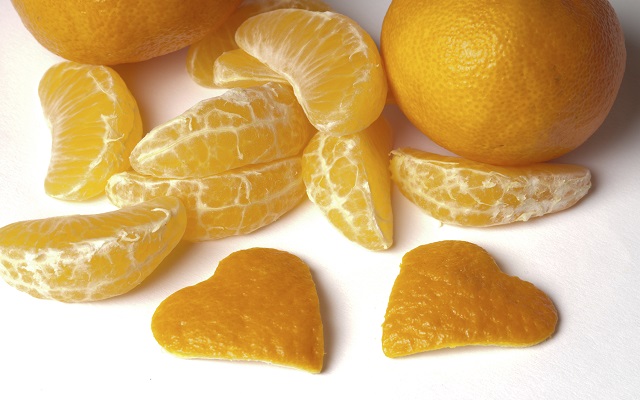Healthy blood vessels are critically important to a healthy heart because blood vessels do much more than provide plumbing for blood to circulate throughout the body.
Blood vessels are an active component of the circulatory system that have the ability to open up to deliver more blood flow where needed, or squeeze down to reduce the flow when necessary. The cells that make up the inner lining of blood vessels, called endothelial cells, are in charge of this activity and help your heart respond effectively to many types of stress.
Researchers measure the health of blood vessels by determining how well endothelial cells can respond to stress, or how effectively blood vessels can open up to increase blood flow when it is needed. Nutrition has a big impact on the endothelial cells lining your blood vessels. Consider that everything you eat or drink is digested, absorbed, and then transported throughout your body in your blood.
Because endothelial cells are continuously exposed to the bloodstream, they are especially vulnerable to damage from oxidative stress. Imagine how these cells might respond following an especially unbalanced meal.
However, continuous exposure to what you eat enables these endothelial cells to respond quickly to beneficial changes in your diet, such as an increase in antioxidants from citrus fruits (1). While vitamin C is often the first thing that people think of as the main benefit from eating citrus fruits, they are a source of many other beneficial phytonutrients including compounds called bioflavonoids. Both vitamin C and citrus bioflavonoids are antioxidants that support healthy blood vessel function.
Study Finds Citrus Improves Women’s Heart Health
In one recent study published in The Journal of Nutrition, a team of Harvard University researchers examined the diets and blood vessel function of over 30,000 women. The scientists found that women who regularly consumed sources of bioflavonoids had improved markers of healthy blood vessel function compared to those who did not. In particular, women who consumed at least two servings of citrus fruits a day showed 20 percent lower levels of endothelial stress-linked biomarkers and a significant improvement in markers of blood vessel function compared to those who did not regularly eat citrus fruits (2).
In this study, women who consumed types of foods that were good sources of bioflavonoids, such as other types of fruit, also showed improvements in the same markers of blood vessel function. But the improvement was much smaller—in the range of 4 to 11 percent better than those with the lowest dietary intake of bioflavonoids. Citrus fruits provide a potent combination of both vitamin C and citrus bioflavonoids, which work together to provide powerful benefits for supporting healthy blood vessels.
Why Supplement with C-Lyte
When Isagenix C-Lyte® was formulated, it was with consumers’ hearts in mind. The product contains a synergistic blend of citrus bioflavonoids and three forms of mineral-buffered vitamin C. It’s important to mention that C-Lyte does not contain furanocoumarins, a class of compounds commonly found in grapefruit, due to the potential for these compounds to interfere with certain medications.
Scientists have identified a number of ways that vitamin C and citrus bioflavonoids work together to benefit heart health, but their role in supporting healthy blood vessels are important reasons why your blood vessels could benefit from the use of C-Lyte.
While overall diet and exercise top the list for supporting heart health, nutrition scientists now consider the protection of flexible, healthy blood vessels as critically important (3). Clearly no dietary supplement can replace regular exercise and healthy eating—which would include a diet rich in fruits like citrus. However, C-Lyte can be a great complement to healthy habits by providing powerful support for blood vessels with a blend of citrus bioflavonoids and vitamin C.
References
- Ashor AW, Lara J, Mathers JC, Siervo M. Effect of vitamin C on endothelial function in health and disease: a systematic review and meta-analysis of randomised controlled trials. Atherosclerosis. 2014 Jul;235(1):9-20. doi: 10.1016/j.atherosclerosis.2014.04.004.
- Landberg R, Sun Q, Rimm EB, Cassidy A, Scalbert A, Mantzoros CS, Hu FB, van Dam RM. Selected dietary flavonoids are associated with markers of inflammation and endothelial dysfunction in U.S. women. J Nutr. 2011 Apr 1;141(4):618-25. doi: 10.3945/jn.110.133843.
- Matsuzawa Y, Kwon TG, Lennon RJ, Lerman LO, Lerman A. Prognostic Value of Flow-Mediated Vasodilation in Brachial Artery and Fingertip Artery for Cardiovascular Events: A Systematic Review and Meta-Analysis. J Am Heart Assoc. 2015 Nov 13;4(11). doi: 10.1161/JAHA.115.002270.





